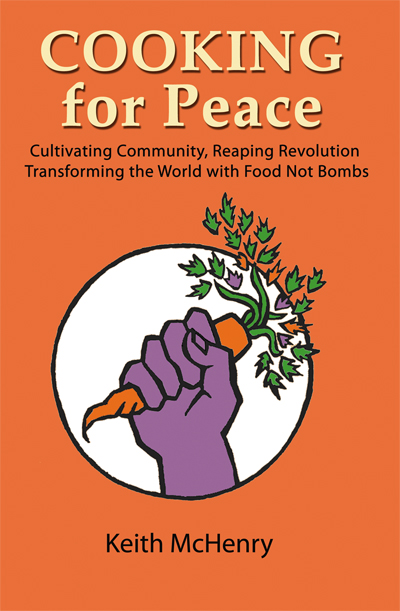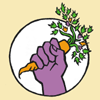 | COOKING for
PEACE Cultivating Community, Reaping Revolution Preface Page 6 Food Not Bombs volunteers, participating in the March 2008 Nashville Gathering, shared details about the increasing numbers of people seeking food. I saw more families arriving at our meals looking like ghosts from Dorothea Lange's Great Depression photos. Children with smudged faces and large frightened eyes clung to their mother's legs. "Food Not Bombs saved my son's life," explained one woman. "If it wasn't for the kids in Gainesville, he would not have survived to birth.' This was the story in the United States before the global economic crash of September 2008. The picture is even more devastating globally. The number of people who went to bed hungry grew from 800 thousand to over a billion in less than a year, not because it was impossible to grow enough for all to eat, but because of the selfish policies of corporate leaders and the governments they control. Over 25,000 people perish each day unable to get enough food. According to the World Bank, the cost of the seven most important food staples increased from December 2006 to March 2008 by 71 per cent on average. Rice and grain prices increased by 126 percent, forcing families in the poorest countries to spend between 60 to 80 percent of their income on food. The June 16, 2010 edition of the Guardian (United Kingdom) published a report on the future of food prices, saying that "Food prices are set to rise as much as 40% over the coming decade amid growing demand from emerging markets and for biofuel production, according to a United Nations report today which warns of rising hunger and food insecurity." Later that summer, fires and droughts in Russia reduced the countries wheat harvest, causing the government to declare that they would not export any of that year's harvest. Twenty five percent of this year's Russian wheat harvest was lost. Wheat prices climbed 50 percent in the two months since the United Nations announcement of increased food costs in June. Pakistan lost half a million tons of wheat as well as much of its rice crop because of this year's catastrophic floods. World rice prices increased in 2010 after 15 to 20 percent of Pakistan's summer crop was destroyed in that country's worst flood in a generation. There were droughts and then floods in Niger. The United Nations claims more than seven million people in Niger face food shortages because of the floods. These are signs that climate change is already contributing to hunger. |
